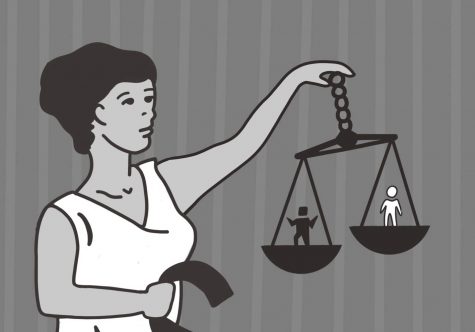The murder of Botham Jean
Highlighting the imbalance of the United States justice system
October 23, 2019

On Sept. 6 of 2018, Botham Jean was shot to death in his home in Dallas, Texas by his downstairs neighbor Amber Guyger.
Jean was a Black man from St. Lucia, an island in the Caribbean. He was an accountant who was heavily involved in his church. Amber Guyger is a White woman who was a Dallas police officer at the time she killed Jean. She was in uniform, off duty and drunk.
Guyger was only sentenced to ten years in prison and if this does not say something about the inconsistency of our justice system, then what does?
Botham Jean did not get the justice he deserved. How did his killer — who invaded his home, shot him, killed him while he was eating ice cream and watching TV, and watch him bleed to death at her hands while doing nothing — only get ten years in prison? Was it because she was white? A woman? A Christian woman? Honestly, I have no clue. But I do know that if this were anyone of a different identity, the case would have been handled very differently. Guyger only getting ten years in prison, highlights the unfairness and injustice that takes place in the American courts.
Last year, I wrote an article about Bernard Noble, a man who was sentenced to 13 years in prison in Louisiana for a nonviolent drug conviction for two-joint’s-worth of marijuana. Even though these cases are not similar in some respects, when these two verdicts are shown in contrast it is an example that highlights the inconsistency of the US justice system. It does not make sense that a woman can be sentenced to ten years for taking a life and another man in a different state can be convicted for 13 years for having two-joint’s-worth of weed. America has a problem, and something needs to change. It is time to revisit our laws. Especially when it comes to the lack of consideration for legal precedents.
In an article published by The Guardian entitled, “Amber Guyger case: judge defends hugging officer who killed Botham Jean,” the author details how Tammy Kemp, the judge for Amber Guyger’s trial, offered her a hug and gave her a Bible while telling her she has a lot of life to live.
Why are more people’s lives seen as more valuable than others? In principle, Kemp hugging Guyger and offering her a Bible doesn’t matter. What matters what that act represents.
Although it is infuriating that the judge ended the trial this way, it should be more infuriating that our system did not deliver on due justice. What matters is the fact that Jean, the innocent man Guyger murdered, is dead and is never coming back. He does not have any life to live. His family did not get justice, and most importantly, he did not get justice. loe
Brock Turner, another infamous case dealing with the rape of Chanel Miller, was only sentenced to six months in prison. Judge Aaron Persky also said he also had his whole life ahead of him, stating that prison would have a “severe impact” on his future.
Why do judges inconsistently feel the urge to use the ‘life-left-to-live’ trope when confronted with convictions concerning the identity of the defendant? Who is to say that one experience is more valuable than the other? Life is all we have and all we know. It is, without a doubt, the greatest loss when it is stolen from someone way too young such as Botham Jean, who was only 26 years old at the time of his murder.
The perpetuation of unequally weighted cases throughout the country shows that as a nation, we have a severe justice problem — one that is inextricably tied to race, gender, religion, sexuality and economic status.

























































































